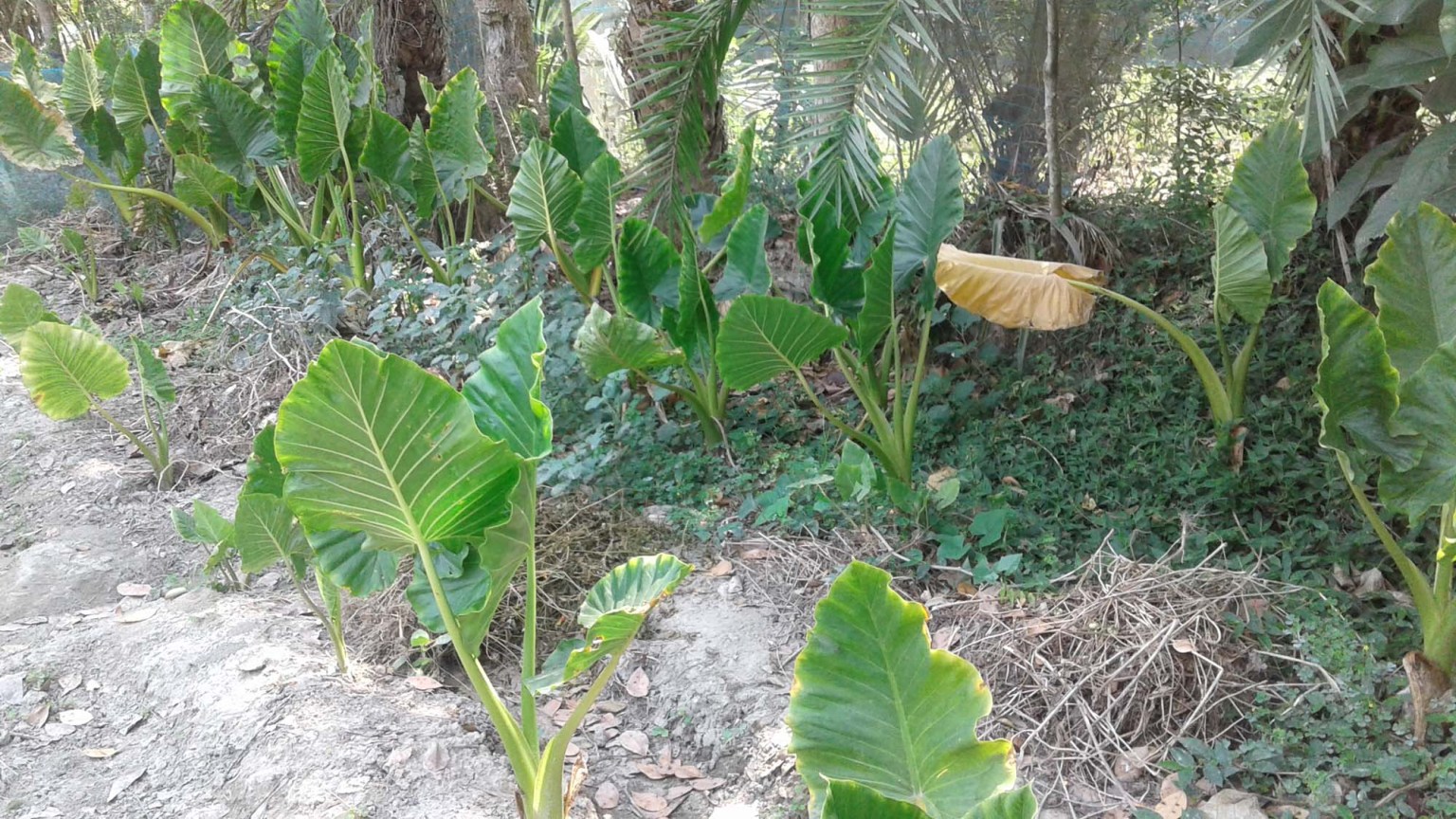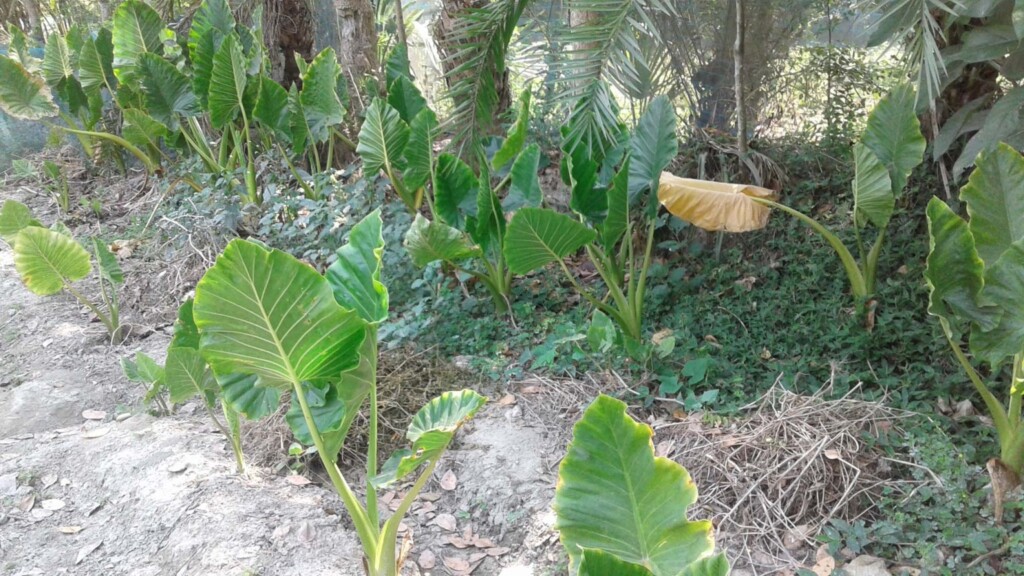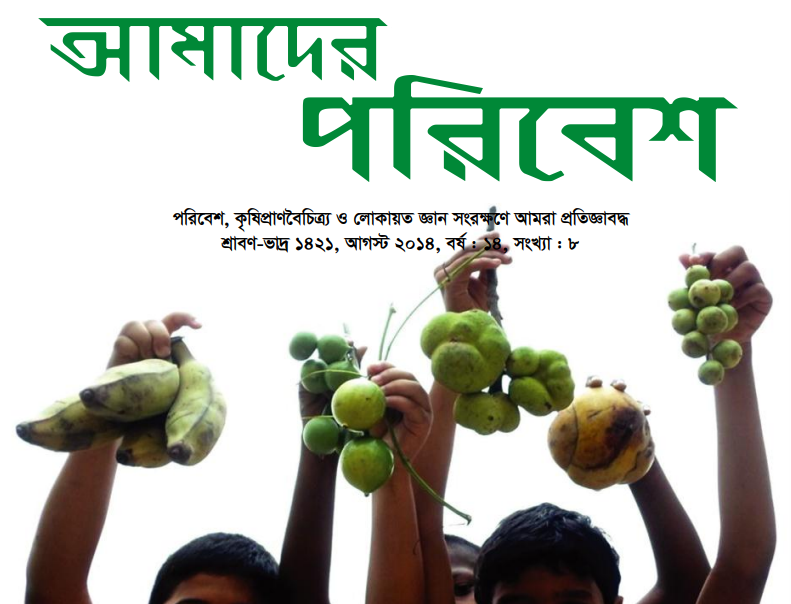Biswajit Mondal from Shyamnagar, Satkhira
Archana Rani of village Joynagar under Kashimpur union of Shayamnagar is cultivating numerous vegetables and crops in 36 decimals of land. In total, she has 41 decimals of land containing homestead, pond, bamboo plants and agricultural field. She is also cultivating local fishes in her pond. Seeing her initiatives to produce organic foods BARCIK selected her house for its Nutrition bank model which known to them as Shotobari (hundred house).
Archana’s home is rich in biodiversity; round the year abounded with diversified crops. She is cultivating bottle gourd, bean, pumpkin, cucumber, cucurbitaceous plant (Jhinga), wax gourd, Indian spinach (puishak), eggplant, potato, chili, spinach, carrot, reddish, bitter gourd, cabbage, okra, papaya, green banana, taro (kachu) in an sustainable way using organic manure and pesticides.

Apart from these she is cultivating different spices such as ginger, coriander, onion, garlic, turmeric, cumin, Kalonji, cardamom, mustard and black legume. In her premises there are many fruit trees like mango, jackfruit, java plum, java apple, pomelo, lychee, palm, dates, lemon, papaya, ambarella (amra), guava, wood-apple, banana, velvet apple (gab), jujube (kool), coconut, betel, fig fruit (dumur) etc which she planted as her dream to provide nutrition to her family members. Her premise is rich with uncultivated plants as well. She learns from BARCIK regarding the importance to nourish the uncultivated plants being the very sources of protein and nutrition. Thus, there are uncultivated food plants such as telakochu, adaberoon, nona-shak, kolmi-shak, katha-shak, helencha, thankuni, durba, gima shak, bounoti, sinchi tulshi in her house. Among fishes she cultivated include ruhi, katla, mrigal, silver carp, koi, tangra, puti, japani puti, shol, baim, tora, murala, crab, shrimp, tilapia, magur etc. in her pond. On the other hand, she also rear livestock and presently she has 14 chickens, 6 ducks, 4 goats, 5 cows and 3 pigeons
However, with its aim to transform one hundred houses of the coast as Nutrition bank BARCIK staffs are constantly communicating and working with local people considering environment, conservation of biodiversity, indigenous knowledge, climate change and people’s initiatives. Through this process Archana is involved with BARCIK and learns various things pertaining to farming safe foods. Her interest and efficiency in growing diversified agricultural production, conservation of biodiversity and sharing attitude encouraged BARCIK to select her home as Shoto Bari in August 2020. BARCIK facilitated her to get deep tube well from Public Health Department as well which gives pace to accomplish her works.

Archana was asked, “how do you get benefit from Shoto Bari? And what impressions, are you observing among the people?” She replied, “We are 4 members, and my husband is a day labour. Off and on, he goes outside to harvest rice. Our main source of income is vegetable production. People are interested to cultivate vegetable. We are exchanging different seed, sapling and information with each other. My house has been selected as Shoto Bari, I have different spices, a small piece of land with uncultivated plants, using vermin compost in agriculture production. Nowadays people are more interested to prepare vermin compost.’ She went on saying, ‘We are conserving and exchanging seasonal seed. Throughout the pandemic I have distributed vegetables among 35 families and bottle gourd, bean, taro, red amaranth, spinach seed in 20 families. Simultaneously villagers buy vegetables from my Shoto Bari. Separately people are picking various uncultivated plants as vegetable almost every day.’
She has developed a women association where they are organizing discussion, training; also, have saving scheme. The deep tube well is contributing a lot in her agriculture production and a good source of pure drinking water for the villagers. As a Whole Shoto Bari/Nutrition Bank is contributing to food security of Archana’s family, conservation of biodiversity; inspiring and creating sharing attitude among local people.
Translated by Rumaisa Samad


